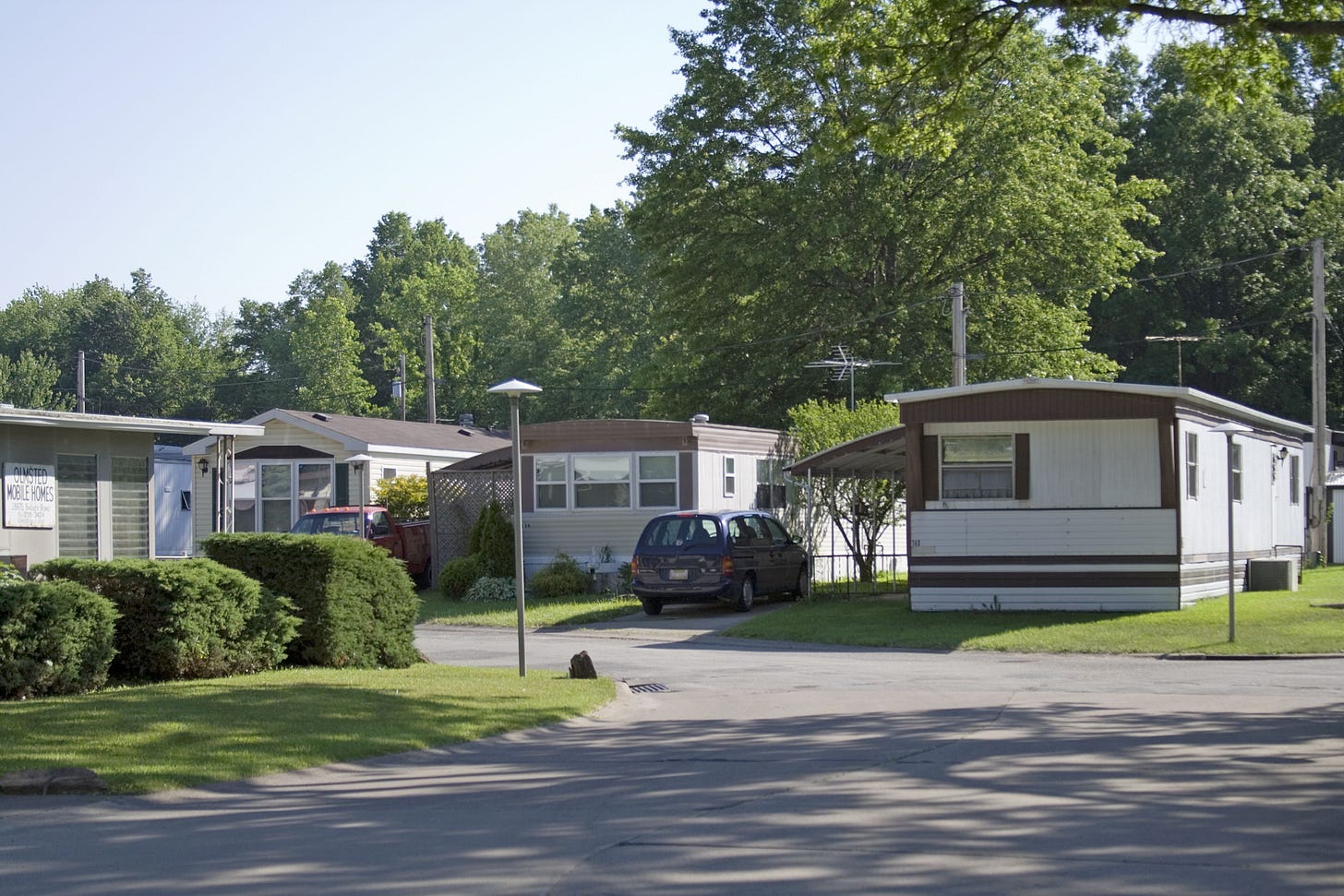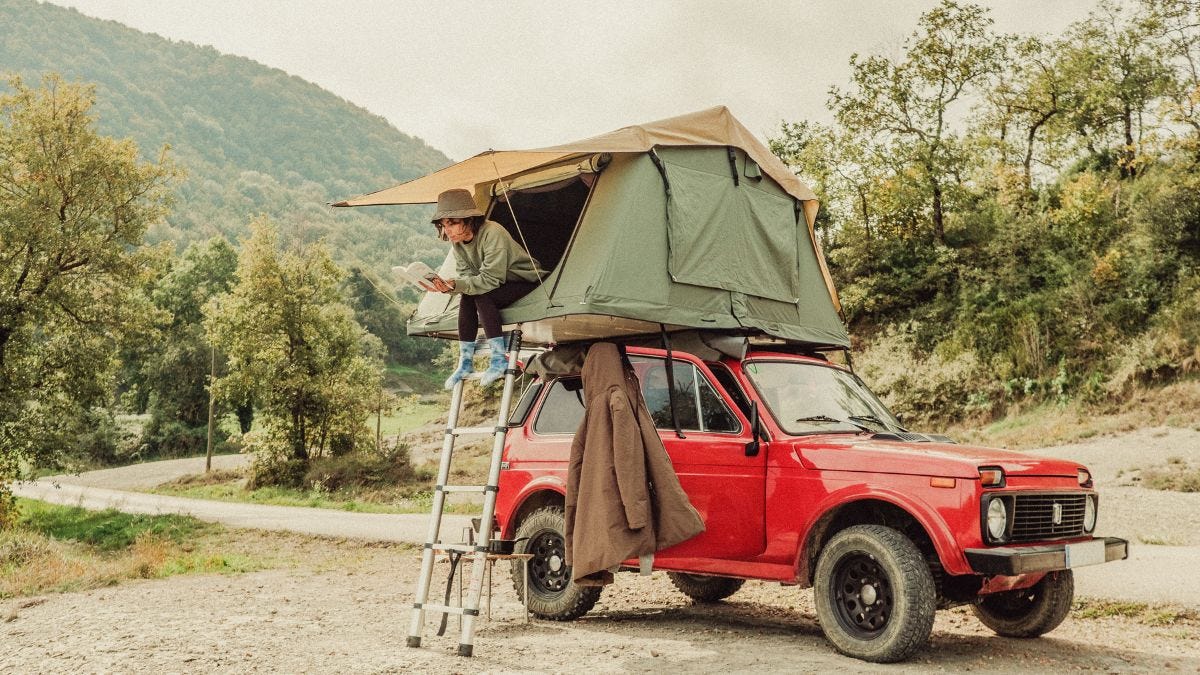Check out our community for outdoor hospitality investors - Investor Campfire!
Estimated time to read: 5 minutes
TL;DR:
5 Reasons Why Outdoor Hospitality Became Such A Hot Investment Opportunity
Reason #1: Buzz in the outdoor hospitality space is a byproduct of the mobile home park investment craze.
Reason #2: The prevalence of "Mom and Pop" sellers and a perceived lack of competition (at least initially).
Reason #3: Perceived high investment returns/cash flow.
Reason #4: Real estate investors underestimate the operational difficulties.
Reason #5: Changing consumer behavior and COVID.
Hungry investors always find money-making opportunities, no matter how far off the beaten path.
A fascinating phenomenon exists in the investment world:
A few investors catch on to a little-known niche and make a fortune. Before long, the market catches on, and a full-on FOMO feeding frenzy is underway. When this happens, prices go up, and juicy opportunities become harder to find.
I have seen it a few times over the years. A decade ago, mobile home parks became the hot asset class. Five years ago, it was self-storage. Now, it is outdoor hospitality.
And I have 5 specific reasons why:
Reason #1: Buzz in the outdoor hospitality space is a byproduct of the mobile home park investment craze.
There are some similarities between mobile home parks and RV parks/campgrounds.
They have similar infrastructure (water, sewer, and electrical hookups on pads that mobile homes and RVs plug into). They both typically operate under "land lease" business models, meaning the tenant or customer rents land from the landowner, not a structure. Brokers often specialize in RV AND mobile home parks as a single brokerage niche, so buyers will see both types of listings from the same broker.
There are even "hybrid" properties that feature both mobile home and RV sites!
Reason #2: The prevalence of "Mom and Pop" sellers and a perceived lack of competition (at least initially).
In the real estate and small business investment communities, there is an obsession with finding opportunities to buy from "Mom and Pop" sellers.
The perception (often incorrect) is that these sellers are unsophisticated and that buying heavily discounted real estate or businesses from them is possible or even commonplace. There is also a perceived lack of competition in niches that have yet to hit the mainstream.
Both circumstances were prevalent in outdoor hospitality a few years ago (and still are present to a lesser degree).
Reason #3: Perceived high investment returns/cash flow.
Nothing excites investors more than seeing potential returns and cash flow higher than they're used to. This has been the case in outdoor hospitality, primarily from real estate investors who consider outdoor hospitality real estate.
For what it's worth, I believe that viewing an outdoor hospitality business as a real estate investment is a recipe for disaster.
Furthermore, coming in with the attitude that outdoor hospitality is a high cash-flow real estate investment is just setting yourself up to believe that outdoor hospitality is easy money, which brings us to our next reason.
Reason #4: Real estate investors underestimate operational difficulties in outdoor hospitality.
Many investors in outdoor hospitality come from real estate and consider outdoor hospitality to be just another type of real estate investment.
(I disagree with this mindset wholeheartedly. The hospitality business is much more operationally intensive than virtually any type of real traditional estate investment.)
I came from working in real estate investments and investing in small apartment buildings with an initial expectation that outdoor hospitality couldn’t be much more complicated. I completely underestimated how much work it took to run a small rustic campground, and it was a rude awakening.
Reason #5: Changing consumer behavior and COVID.
Since COVID-19 began, investors and the press have been hyping the boom of outdoor recreation, camping, and glamping. While there is plenty of hard data to support this narrative, it has only created more buzz around investment in the industry.
There was certainly a “COVID bump,” but outdoor hospitality was a strong, steadily growing industry long before COVID-19 and is returning to that normalized trend. Camping participation is also skewing to a younger demographic, which is changing the customer base and industry!
What does it mean for investors?
When a small investment niche gets lots of attention, it throws off the supply and demand of investment opportunities in the niche.
Currently, more buyers are chasing the same types of existing campgrounds and RV parks (100+ RV sites, seasonal/annual stays, resorts, etc.) than there are properties for sale.
Sale prices are high because of the high demand for investment opportunities. When investors find a property to buy, they must get creative in driving revenue with things like high-end lodging, amenities, and unique experiences.
Investors must also be creative in finding opportunities others miss or by creating their own opportunities through development.
If you’re reviewing the financials of an outdoor hospitality property, compare 2023 numbers to 2019. Don’t buy based on 2020-2022 numbers.
That’s all for this week. Thank you so much for reading!
PS… If you’re enjoying Outdoor Hospitality Weekly, will you take a moment to send this newsletter to a friend? It goes a long way in helping us grow the newsletter (and hopefully help people who want to learn about Outdoor Hospitality).
We’d also love your input on making Outdoor Hospitality Weekly even more useful for you! So please leave a comment with:
Ideas you’d like covered in future editions
Your biggest takeaway from this edition
We read & reply to every single one of them!









